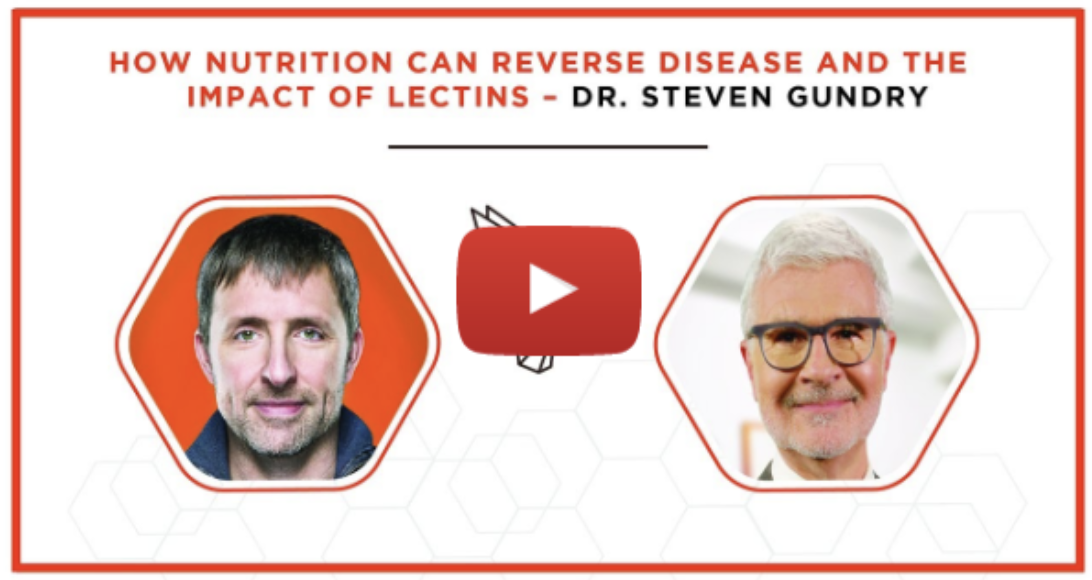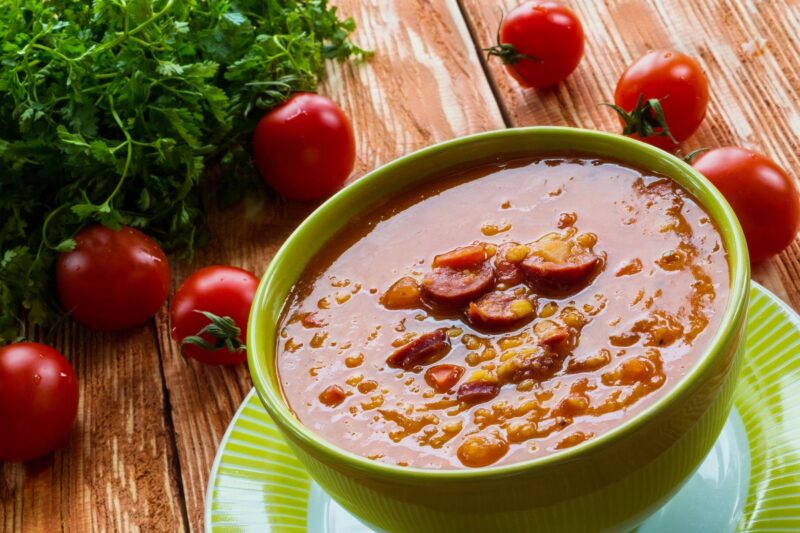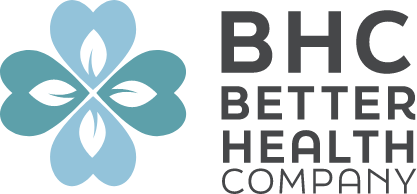Lectins are proteins found mainly in legumes and grains. All legumes, like kidney beans, contain lectin, which may stop you from performing at your highest potential. Are beans causing you to be sick? Some lectins are highly toxic while others, only damage our digestive systems when they resist being broken down in the gut. For example, if you eat raw or undercooked kidney beans, you’ll get sick because they contain phytohaemagglutinin, a type of lectin that causes the clumping of red blood cells. [1] Now, you’ve probably eaten kidney beans a few times without fatal blood clots. This is because when fully cooked, the lectins in kidney beans break down resulting in the more mild reaction of gas and bloating. However, For many people, even trace amounts of lectin can cause longterm or chronic damage to their digestive health.
Are lectins good or bad for you?
Lectins are proteins that bind to carbohydrates. They are present in many plant foods and some animal products. There’s little research on the effects of different lectins in humans. More research is needed to conclude whether they’re good or bad for human health.
When cooked properly, foods that contain lectins shouldn’t give you any trouble. In fact, a 2015 study found that almost 30% of the food you eat contains lectins.
That said, animal studies suggest that lectins may be an antinutrient, meaning that they can interfere with how well your body absorbs nutrients from food.
Lectins might also negatively affect people with digestive sensitivities or a tendency to experience gastrointestinal distress including interfering with both your gut microbiota and the absorption of nutrients in your gut, decreasing acid secretion, and increasing inflammation. (1)
Symptoms of lectin sensitivity
- Leaky gut
- Bloating
- Gas
- Cramps
- Fatigue
- Mood imbalance
- Skin rashes
- Joint pain
- Allergies
- Nausea
- Muscle weakness
- Numbness
- Hormonal fluctuations
- Malnutrition
- Ricin poisoning
- Acid reflux
- Diarrhea and constipation
- Arthritis
- Irritable Bowel Syndrome
- Inflammatory Bowel Disease
Lectin is believed to worsen autoimmune disease in people who have lectin sensitivity. Lectin is so resistant to being digested that it can cross over into the circulation system where it can cause damage to cells. (2)
Cooking foods that contain lectins, including beans, inactivates lectins and renders them less harmful or harmless.

Possible harmful effects of lectin
Are beans causing you to be sick? Only a few raw kidney beans can kill you because the naturally occurring lectins will bind to the sugar coating on your red blood cells, which makes them stick together until you get abnormal clotting.[2]
Perhaps you’ve heard of ricin, the extremely toxic poison featured in the Breaking Bad TV series. Vanishingly small doses will kill you, yet it is derived from the lowly castor bean. (3)
Due to the toxicity of lectins, it’s no surprise that the top 8 food allergens contain higher amounts of lectins, including:
- Dairy
- Eggs
- Wheat
- Soy
- Peanuts
- Tree nuts
- Fish
- Shellfish
In fact, about 20% of all cases of rheumatoid arthritis are caused by lectins in the nightshade family.
Common nightshades include
- Tomatoes
- Potatoes
- Eggplant
- Bell peppers
There are perhaps 100 additional less common foods like goji berries in that family, all of which contain lectins. “Superfood” goji berries anyone? Think again.
Research has linked lectins with the following negative effects:
Digestive sensitivities
Eating food containing lectins may cause digestive distress in some people.
That’s because the body cannot digest lectins. Instead, they bind to cell membranes lining the digestive tract, where they may disrupt metabolism and cause damage.
People with an underlying digestive condition, such as irritable bowel syndrome (IBS), may experience negative effects after eating anti-nutrients like lectins.
It makes sense to avoid any foods that you identify as causing digestive problems. If you experience digestive discomfort after eating certain foods, consult your doctor and avoid eating foods that cause discomfort. (1) and take supplements that will improve your gut health.
Toxicity
Different types of lectin have various effects on the body. Some are highly toxic, including ricin, a toxin derived from castor beans. Meanwhile, others are harmless.
It’s important to avoid raw, soaked, or undercooked beans. These can be toxic.
For instance, phytohemagglutinin, a lectin high in kidney beans, can cause extreme nausea, severe vomiting, and diarrhea after eating just 4 or 5 raw beans.
The FDA states that raw kidney beans contain 20,000–70,000 hau, while fully cooked beans contain a safe amount of 200–400 hau.
Soaking beans isn’t enough to remove lectin. However, cooking beans for 30 minutes can destroy the lectins and make the beans safe to eat.
Slow cooking is not recommended, as slow cookers may not reach temperatures hot enough to destroy the toxin. (1)
Leaky gut
Dr. Mercola says ‘All grains contain glutinous proteins known as prolamines that can be very “binding,” as they are pasty substances our bodies were just not designed to breakdown correctly.’
‘Substances in grains, including gliadin and lectins, may increase intestinal permeability or leaky gut syndrome. Leaky gut can cause digestive symptoms such as bloating, gas, and abdominal cramps.’ (2)
May damage the digestive tract
Some research states that lectins can disrupt digestion, interfere with nutrient absorption, and cause intestinal damage if eaten in large quantities over a prolonged period of time. (1)
Fatigue
Lectin is associated with chronic fatigue syndrome in some people. The good news is that a dietary change could help resolve your tiredness problem and help you find your lost energy. (2)
Skin rashes
Lectin sensitivity might show up externally in dry, itchy, flaky skin. Redness and itchiness are often the first signs of a problem. (2)
Muscle weakness
Due to a lack of vitamin B12 absorption by the intestines, muscle weakness is likely. Not having good muscle strength can also lead to problems with balance and gait. (2)
Numbness
The sensation of extremities falling asleep could be due to a lack of nutrients like B12 that are passed through the digestive system rather than being absorbed. (2)
Susceptibility to illness
Getting sick more often could be due to having lectin sensitivity. If your immune system is already busy fighting off irritants, it has fewer resources to devote to fighting off bacteria as they enter your body. (2)
That said, research in humans is limited, and more studies are needed before the true effects of lectins in humans are fully understood.
High lectin foods are generally considered safe as long as they’re cooked properly. However, research is mixed.
Eliminating lectins from the diet may mean avoiding certain foods, as well as making sure you cook others properly.

What is the lectin-free diet?
The lectin-free diet involves either reducing your intake of lectins or eliminating them from your diet. This is beneficial for people with food sensitivities. It can be difficult to remove lectins from your diet because they are present in most plant foods but especially high in:
- legumes, such as beans, lentils, peas, soybeans, and peanuts
- nightshade vegetables, such as tomatoes and eggplant
- dairy products, including milk
- grains, such as barley, quinoa, and rice
It’s important to note that it’s rare to eat foods with a dangerously high amount of active lectins because food is usually cooked properly.
Should you try a lectin-free diet?
Common foods that contain lectin are generally considered safe for most people to eat as long as they are cooked properly.
People with digestive sensitivities might experience negative effects after eating these foods. It makes sense to avoid any foods that cause digestive problems for you.
That said, there are various things to consider before trying a lectin-free diet.
Nutritional deficiencies
Many healthy foods are implicated in the lectin-free diet. The diet is lacking in broad-based nutrition, including fiber.
Foods that contain lectins, such as beans and certain vegetables, are often good sources of vitamins, minerals, and antioxidants. Eating these foods is likely to benefit your health, outweighing the negative effects of lectins. [1]
Research in humans is lacking
Research on lectins and their effects on people is currently sparse.
Most of the studies have been conducted on animals, not humans. Research has been largely performed in vitro. This means it has been conducted with isolated lectins in laboratory dishes or test tubes. [1]
Claims may be biased
Make sure to take a critical approach when researching this food plan. Many websites that promote it are trying to sell products.
Look for science-based evidence instead of inflated claims on websites that sell cookbooks or supplements geared toward helping you achieve lectin-free health. Some may be what they claim to be, but others may not.
For example, there are claims that lectins promote weight gain, but multiple studies, such as a 2016 study on pulse consumption, indicate a weight loss effect. [1]
The lectin-free diet is not necessary for most people, and it comes with risks. For some people with food sensitivities, reducing lectins may help.
Foods to eat on a lectin-free diet
All plant and animal products contain some lectins. Yet, fruits and vegetables that contain relatively little lectin include:
- apples
- artichokes
- arugula
- asparagus
- beets
- blackberries
- blueberries
- bok choy
- broccoli
- Brussels sprouts
- cabbage
- carrots
- cauliflower
- celery
- cherries
- chives
- collards
- cranberries
- kale
- leafy greens
- leeks
- lemons
- mushrooms
- okra
- onions
- oranges
- pumpkins
- radishes
- raspberries
- scallions
- strawberries
- sweet potatoes
- Swiss chard
You can also eat all forms of animal protein on the lectin-free diet, including:
- fish
- beef
- chicken
- eggs
Fats, such as those found in avocados, butter, and olive oil, are allowed on the lectin-free diet. Many types of nuts, such as pecans, pistachios, pine nuts, flax seeds, hemp seeds, sesame seeds, and Brazil nuts, are also allowed. [1]
Some kinds of nuts contain lectins, including walnuts, almonds, and sunflower seeds. [1]
While most plant foods contain lectins, you can choose to eat low lectin alternatives, such as broccoli, sweet potatoes, and strawberries.
Foods to avoid on a lectin-free diet
The foods highest in lectins include:
- nightshade vegetables, such as tomatoes, potatoes, goji berries, peppers, and eggplant
- all legumes, such as lentils, beans, peanuts, and chickpeas
- peanut-based products, such as peanut butter and peanut oil
- all grains and products made with grain or flour, including cakes, crackers, and bread
- many dairy products, such as milk
While cooking removes lectins from some foods, such as kidney beans, it may not remove lectins from others, such as peanuts. [1]
These six foods are some of the worst sources of lectins in the American diet when consumed raw.
Kidney Beans
Red kidney beans are a great source of plant-based protein and they are a low-glycemic-index food. However, it’s critical that you boil them thoroughly before you eat them. Eating raw or undercooked kidney beans exposes you to an incredibly high level of phytohemagglutinin. Cooking beans thoroughly reduces the activity of this lectin to undetectable levels. (3)
Peanuts
Peanuts are another form of legume, and like kidney beans, they contain lectins. Peanut lectins can be detected in the blood after eating peanuts in large amounts. While no studies have been done to determine whether this has health effects, it does show that peanut lectins are absorbed by the body. (3)
Whole Grains
Raw wheat and other whole grains are high in lectins. Raw wheat germ, which is often sold as a source of fiber, can contain as much as 300 mcg of wheat lectins per gram. If you’re trying to avoid lectins, do not eat raw whole grains. (3)
Raw Soybeans
Soybeans are another legume that’s full of lectins. However, unlike some other legumes, soybeans are often eaten toasted or roasted. This type of dry heat does not appear to be as effective at breaking down lectins as boiling. Be cautious when eating raw or toasted soybeans if you are avoiding lectins. (3)
Raw Potatoes
Potatoes are part of the nightshade family and contain high levels of lectins. Raw potatoes, in particular the skin, appear to contain potentially harmful lectins that may affect your health. (3)
On the lectin-free diet, people may avoid legumes, nightshade vegetables, grains, and peanuts.
Diet guidelines and tips
When following any restrictive diet, including the lectin-free diet, it’s important to make sure you get enough nutrients from the other foods you eat.
Many of the foods that are eliminated on this food plan are high in dietary fiber, which is beneficial to health. Make sure to either eat enough fruits and vegetables or take a fiber supplement to compensate.
Here are some tips to remember when following the lectin-free diet: [1]
- Soaking and boiling beans reduce their lectin content.
- Fermenting or sprouting grains and beans can also help reduce their lectin content.
- Try an elimination diet to see if you have a food sensitivity to some lectin-containing foods. To do this, remove one food at a time and check whether your symptoms improve.
- If possible, talk to a doctor or dietitian to make sure you’re getting your full range of nutrients each day.
If you try out the lectin-free diet, make sure you’re getting enough nutrients from other food sources. Most foods contain some lectins, especially legumes and grains.
If you’re experiencing discomfort after eating, consult your doctor or dietitian. Also, if you’re considering starting a lectin-free diet, it’s a good idea to consult your doctor or dietitian, especially if you’re pregnant or have an underlying health condition.
Make sure to take a critical approach when researching this food plan. Many websites that promote it are trying to sell products
Our guts are delicate and need balance to keep us performing at our peak. Since the turn of the 21st Century medical research has proven that gut health is vital to our mental health as it is linked to our brains. In fact, the gut is becoming known as our “little brain” or second brain. Click here to discover how your gut is your second brain
Sources:
- Lectins – Harvard TH Chan School of Public Health
- 10 Signs you have a Lectin Sensitivity – Power of Positivity
- Worst Foods High in Lectin – Web MD
Podcast of Interest
Renowned cardiologist, New York Times best-selling author, and medical researcher Dr. Steven Gundry joins Dave Asprey to talk about his new book, “The Plant Paradox”, which discusses how nutrition can help to reverse disease. Dr. Gundry explains how seemingly healthy foods are making us sick due to proteins called lectins. From the vast array of sensitivities to lectins, to their impact on autoimmune disorders, to the foods you need to be aware of, Dr. Gundry discusses his theory on a healthy diet in this fascinating, intelligent discussion with Dave Asprey.



